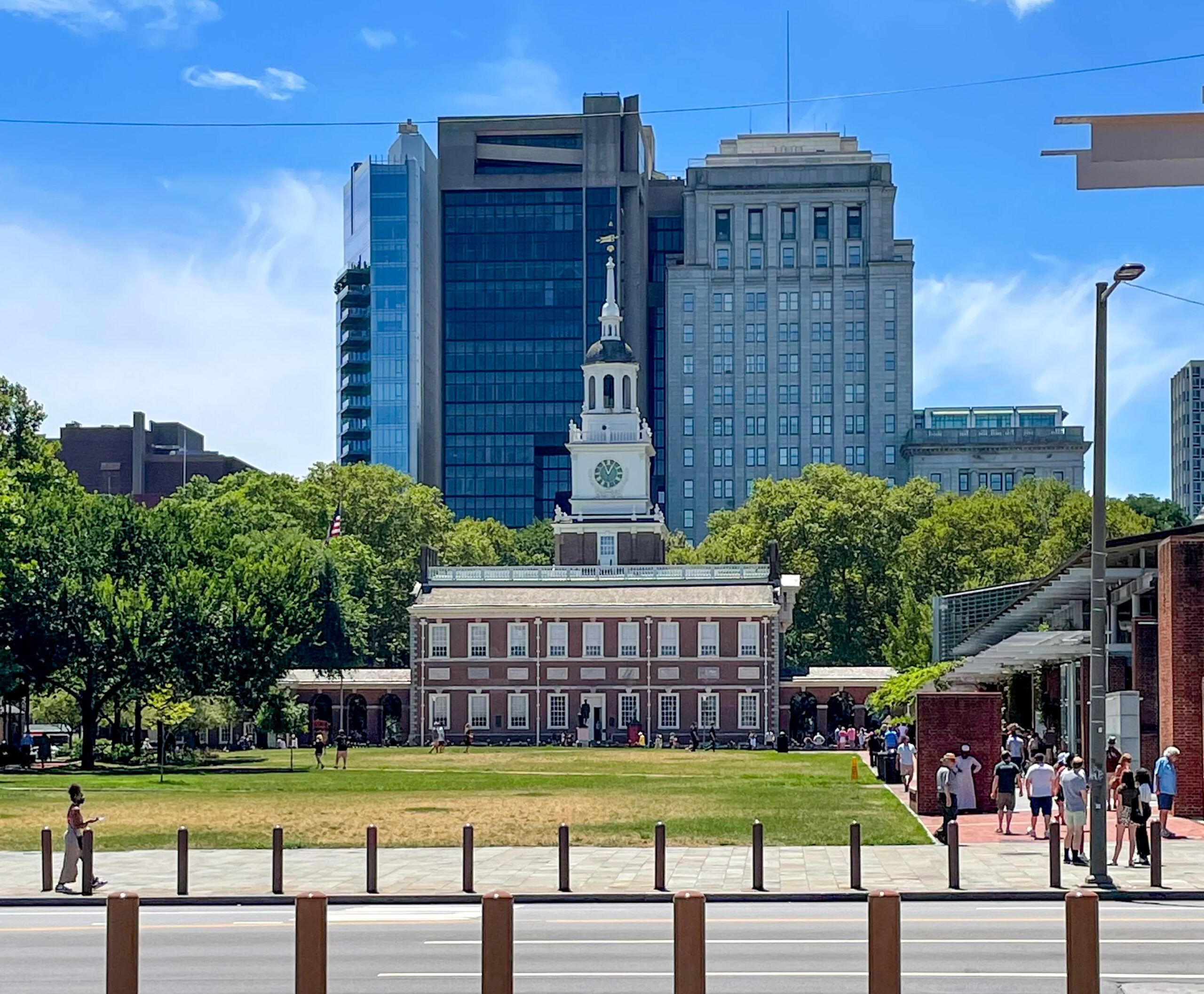Is it really possible for someone once incarcerated for selling marijuana to get state support for a legal marijuana business?
“Most people are sort of intrigued and want to give it a shot,” Paul Hyland, deputy commissioner of the Office of the Marijuana Commissioner, also known as the OMC, told Technical.ly. “Most of the feedback we get is that they don’t understand the process.”
Dozens of Delaware residents showed up at Delaware Tech’s Wilmington campus on Tuesday to learn more about that process. It was the third such workshop the OMC hosted after events in Newark and Georgetown, which OMC’s community relations officer Keila Montalvo also had big turnouts. The Dover workshop on June 26 is expected to follow the trend.
The OMC’s social equity program reserves about 40% of the state’s marijuana business licenses to Delawareans impacted by past drug laws that disproportionately targeted low-income minority communities. Any adult Delawarean who has been convicted of a marijuana crime, is an immediate family member of someone convicted of such an offense or lives in an area identified as disproportionately impacted (DIA) is eligible to apply.
The program also offers reduced licensing fees, resources and a promise of community investment in DIA areas through tax revenue from marijuana sales.
As with all Delaware marijuana licenses, social equity licensees will be selected via a lottery after a process that starts with one of these workshops. Some attendees are business owners or own retail property. Most fit the eligibility requirements in one way or another and show up out of curiosity about the premise: Is it really possible for someone once incarcerated for selling marijuana to get state support for a legal marijuana business?
“Most people are sort of intrigued and want to give it a shot,” OMC deputy commissioner Paul Hyland told Technical.ly. “Most of the feedback we get is that they don’t understand the process.”
Delaware’s two-stage approach saves applicants money
The process has been notoriously long, but there’s a reason for that, Hyland said. Issuing all of the licenses to big established companies with lots of capital would undoubtedly be easier and faster, but it would lock out a lot of potential local business owners — and the social equity applicants would have no chance at all.
“We don’t want [applicants] spending a lot of money,” Hyland said. Some states may require an applicant to have control over a property before they apply, meaning they may be paying rent on a property for more than a year before receiving a license.
“We’re not going to put our applicants through that, so we have to have this two-stage approach,” Hyland said.
The two stages are a conditional license — received when you clear the application process and get selected by the lottery— and an active license, which is awarded after conditions laid out by state regulations are met. The conditional period means that the license isn’t guaranteed after lottery selection, but gives applicants breathing room to get everything together before active licenses are issued.
It’s an involved process. The Tuesday workshop covered fees and costs, taxes, legal issues (including that some social equity applicants have a drug conviction on their record that can disqualify them for loans, and how to navigate that), working with financial institutions and commercial realtors, state legislation, and advocacy.
You can access the slideshow on the OMC website, or watch the presentation and panel here:
Even for someone who already owns a smoke shop or a CBD retailer, it’s not as simple as adding THC products to their shelves. Unlike the Wild West of CBD oils and gummies, THC is highly regulated.
“They are going to have a little bit of culture shock when they see how much regulation is involved,” Hyland said.
HB 408 may speed up availability for recreational use without sidelining social equity licensees
When it comes to legalized marijuana, legislation always seems to be in the pipeline.
Delaware Marijuana Commissioner Rob Coupe missed the Tuesday workshop to be in Dover as the state House of Representatives held a floor discussion and vote about amending HB 408. That bill would allow medical marijuana dispensaries in Delaware to temporarily operate for recreational purposes.
To address concerns that the temporary conversion licenses would give dispensaries an unfair advantage over social equity applicants, the House amended the bill to require all of those temporary license fees to be used only as financial assistance to social equity applicants.
The passage of HB 408, which was approved by the House and is now in the Senate’s hands, will let Delawareans access recreational marijuana much sooner than if recreational and medical sales stayed completely separate. Dispensaries could apply for a conversion license as soon as Aug. 1 if the bill passes — about a month before other retail applicants apply for stage one conditional licenses.
While the first retail licenses are anticipated to be issued in March 2025, the recreational market won’t be fully established until 2026.
Right now, potential social equity applicants can confirm whether they live in a DIA using the OMC’s interactive map. To qualify, an applicant must have lived in a DIA for at least five of the last 15 years. These prospective candidates can also fill out the Social Equity Eligibility Validation Form, a step that will issue a verification number they need when the applications open in September.
Fill out the Social Equity Eligibility Validation Form
Check out the OMC’s map of disproportionately impacted areas
There will be 33 lotteries in all, and social equity applicants won’t be in the same pools as big out-of-state players like Truelieve and The Evergreen Market.
“People will say the best-qualified people aren’t going to get [a license],” Hyland said. “You know what, we don’t necessarily need the best-qualified people. We’re looking for Delaware people.”







